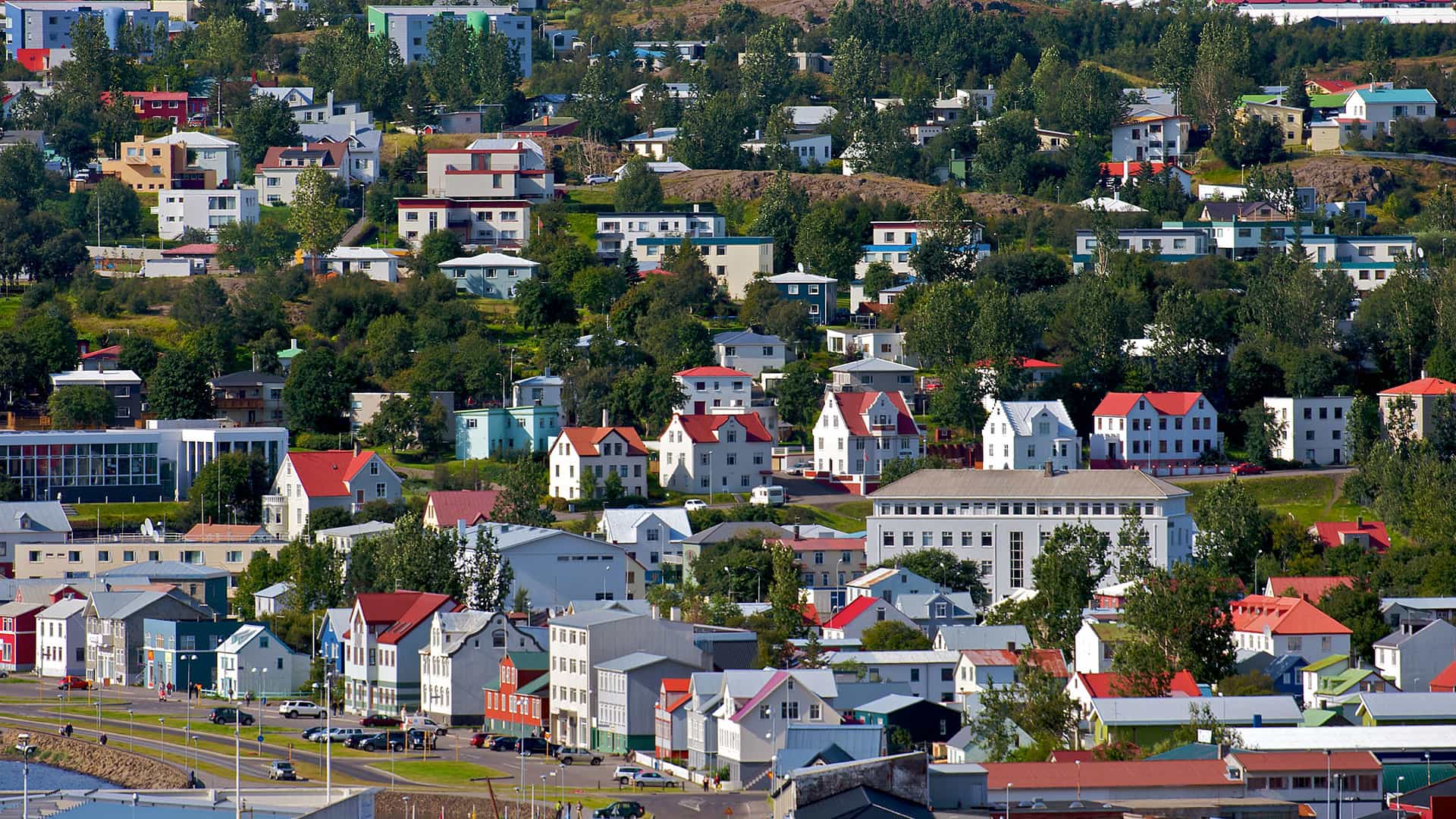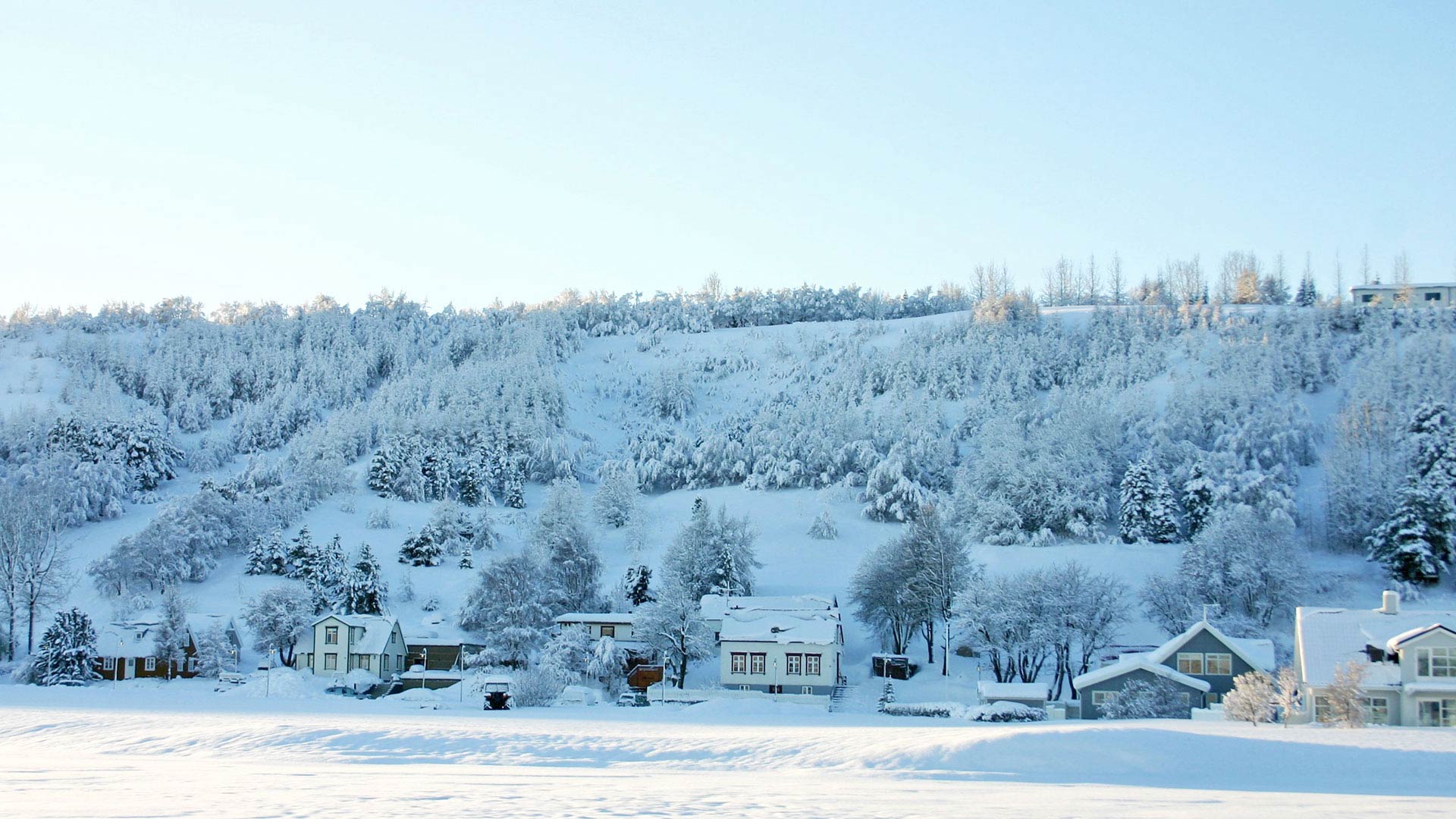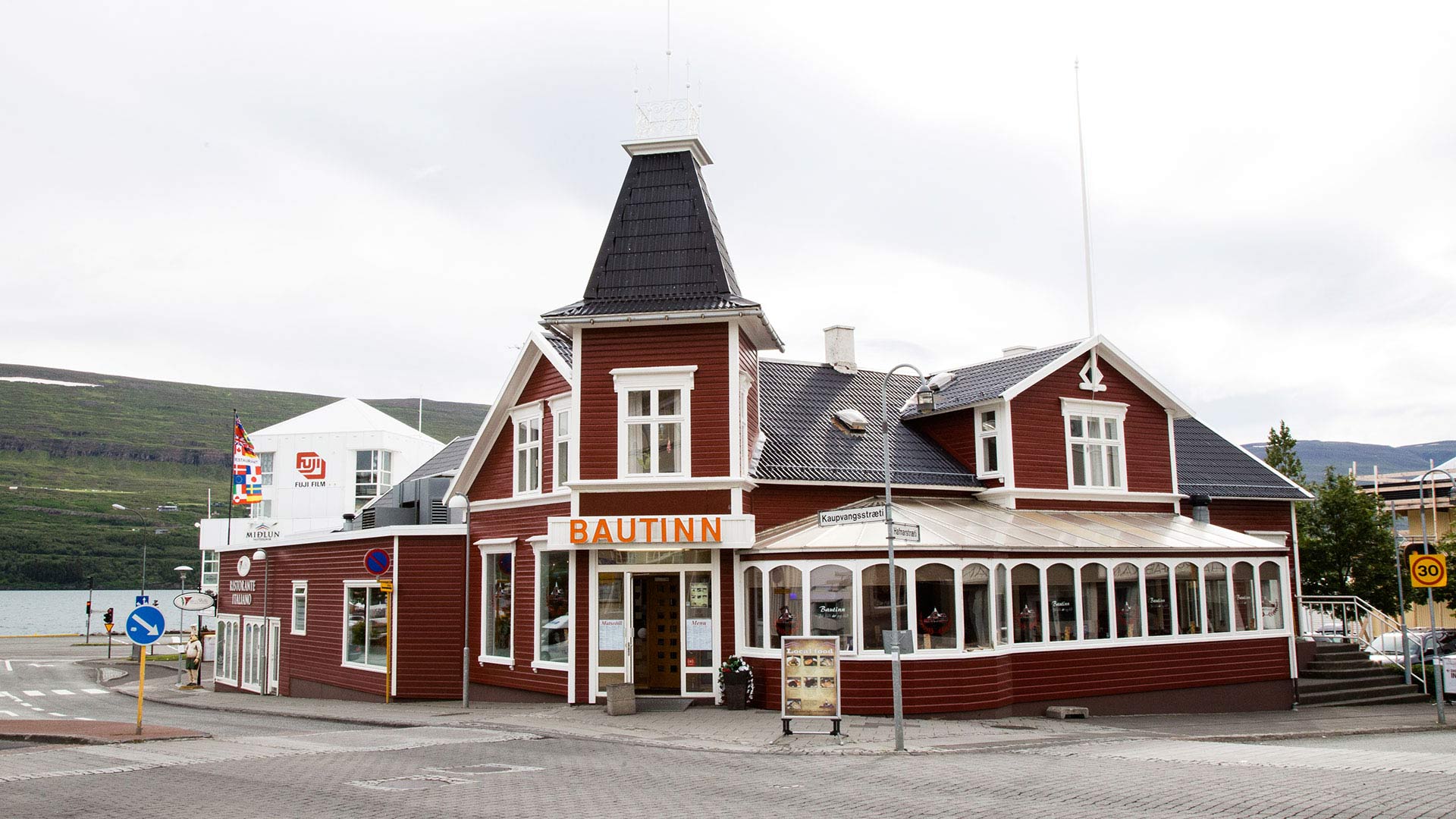The capital of the north
Akureyri, the largest town outside of the greater Reykjavik area, is situated in innermost Eyjafjörður fjord. It is an old trading station and also an important fishing town and is full of stuff to see and do.
Around Town:
It’s hard to miss the Akureyrarkirkja, a prominent church perched high on a hill, whose twin towers dominate Akureyri’s skyline. This Lutheran church was designed by Guðjón Samúelsson and consecrated in 1940. On a clear day, you can see tremendous views of the nearby fjord and mountains from the back of the church.
The Old Town is a collection of houses and buildings still standing not far outside the very centre of town. Together they give visitors a glimpse into the early history of Akureyri. Some of the historic buildings still standing are the old theatre, the old school house and the hospital built in 1827. Also in the old part of town is Laxdalshús, a beautiful wooden home built in 1795. Many of the residential houses in this part of town are also quite old and make for charming surroundings for a stroll.
Part of Old Town and one of Akureyri’s landmarks is Nonnahús (Nonni House), the childhood home of the Icelandic writer and Jesuit priest Jón Sveinsson, who went by the pen name Nonni.
Built in 1850, the house is now one of the town’s oldest buildings and serves as a museum dedicated to Nonni's children’s books, which were published in over 40 different languages. It is open to visitors in the summer and by request during wintertime.
If swimming laps or playing a game of Marco Polo is your thing, the public swimming pool in Akureyri is oft considered one of the best in Iceland. The facilities – located just behind the landmark Akureyrarkirkja – have it all! Two 25 metre outdoor pools? Check. Indoor and outdoor pools? Check. Water slides? Check! Splash pool? Check! Steam bath, sauna and four hot pots with massage jets? Check, check and check!
For just a few hundred krónur admission, it’s worth a visit while in the capital of the North.
Northern Nature:
On the hill overlooking the old town of Akureyri you’ll find Lystigarðurinn, the world’s northernmost botanical garden. First established as a park in 1912, the botanical garden was introduced in later years and now exhibits an impressive collection of both Icelandic and foreign flora. It is open to visitors from 1 June through 30 September.
Not far outside of town is Kjarnaskógur, a marvelous green space featuring more than 1 million trees, all planted within the past 50-years. The area is equipped with several marked hiking routes, as well as a mountain biking trail, playgrounds, barbecue facilities, a volleyball court, and shelters for bird-watchers around the Hundatjörn marsh. In the winter months, when weather permits, some trails are converted for the use of cross-country skiers.
If visiting in the winter months, you’ll be glad to know that Akureyri is Iceland’s ski resort town, with the nearby Hlíðarfjall mountains seeing a lot of activity in the colder months of the year. The slopes range from 500 to 1000 metres above sea level, guaranteeing plenty of snow during the winter months. Ski and snowboard rental is available, if you didn’t bring your gear along.
Museums & Attractions:
The Christmas spirit is alive and well year-round, and at the Christmas Garden (Jólagarðurinn) you can buy yuletide souvenirs, taste some local treats and learn all about Icelandic Christmas traditions, including the 13 Yule Lads and the “Christmas Ogress” and her child-eating cat. The vivid red house a 10 minute drive outside of Akureyri also features a fairytale tower complete with the world’s largest Christmas calendar, a play area for young visitors and beautiful gardens for everybody to enjoy.
If you’re more fascinated by the history of aviation than Santa’s elves, then a visit to the Aviation Museum is right up your alley. Housed in an airport hangar a short drive outside of central Akureyri, visitors to the museum will find a detailed history of aviation in Iceland and the lives of Icelandic pilots portrayed through images and video. Also on display are a number of airplanes, including the first aircraft owned by Loftleiðir Airline, Iceland's oldest ambulance airplane and the first glider built in Akureyri 1937. The museum is open to visitors daily from June through August and on weekends in May.
Last but not least, Safnasafnið, or the Icelandic Folk Art Museum, is built on a hill overlooking Eyjafjörður. The museum exhibits folk art together with works by modern artists and houses an impressive book collection. There’s also an old fashioned garden which adds to its charming atmosphere. The museum is open daily from 17 May through 31 August.
View North Iceland

.jpg)


